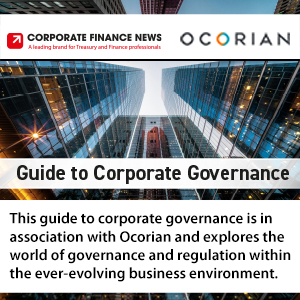Associated British Foods (ABF) shares fell by more than 3% in early trading after the group reported a 26% drop in its full year profits to £1.41bn.
The company, which owns brands including Silver Spoon, Twinings and Primark, saw its revenue drop by 1% to £19.4bn in the 12 months to 13 September, while its operating profit fell by 12% to £1.7bn.
ABF said the results were caused by reductions in its sugar division, following the closure of its Vivergo bioethanol plant in Hull.
Furthermore, ABF reported an 11% drop in its adjusted earnings per share to 174.9 pence, which it said benefited from the accretive impact of completing £594m in share buybacks.
The latest update comes after the ABF board conducted a review into maximising long-term value. It stated that while no decision has been taken, the outcome may lead it to undertake a separation of its Primark and food businesses.
The board revealed the review is being conducted in consultation with its largest shareholder, Wittington Investments.
Chief executive at ABF, George Weston, said the last full financial year was one of "intense strategic and operational activity" as the firm navigated a challenging external backdrop.
He added: "I fully support the board's review of the Group structure and will be closely involved in the process and any outcome. Within ABF we have two great businesses but one strong culture of long-term value creation driven by the dedication and excellence of our people.
"Our unique and exceptional food business has historically been less well understood by the financial markets than Primark, yet it has a highly attractive portfolio, deep global expertise and much potential."
Head of markets at AJ Bell, Dan Coatsworth, questioned why ABF has decided to potentially split up the company’s divisions.
He stated: "The break-up that ABF said would never happen is now on the cards. It has long argued that having a collection of businesses was better than splitting itself up into individual components.
"The big question is what’s triggered a rethink by the board. The fact the share price hasn’t really gone anywhere in the past two years could be a factor. Over the past five years, Next has delivered a 130% share price gain versus just 36% from ABF. That sort of underperformance must have caused considerable frustration to Primark’s owner.
"The board now seems to have finally woken up to the fact that it might benefit from splitting into two, as the component parts appeal to different types of investors. Primark might even command a much higher valuation as a standalone listed entity. ABF says it is considering all options but essentially that means the wheels are being greased for a corporate break-up."
Latest News
-
FCA launches probe into WH Smith following accounting error
-
Bank of England cuts interest rates to 3.75%
-
Currys’ shares jump as it reaffirms guidance
-
LondonMetric announces set of deals totalling £91m
-
Diageo sells Kenyan drinks business to Asahi for $2.3bn
-
Bunzl publishes ‘indifferent’ outlook in trading update
© 2019 Perspective Publishing Privacy & Cookies







Recent Stories